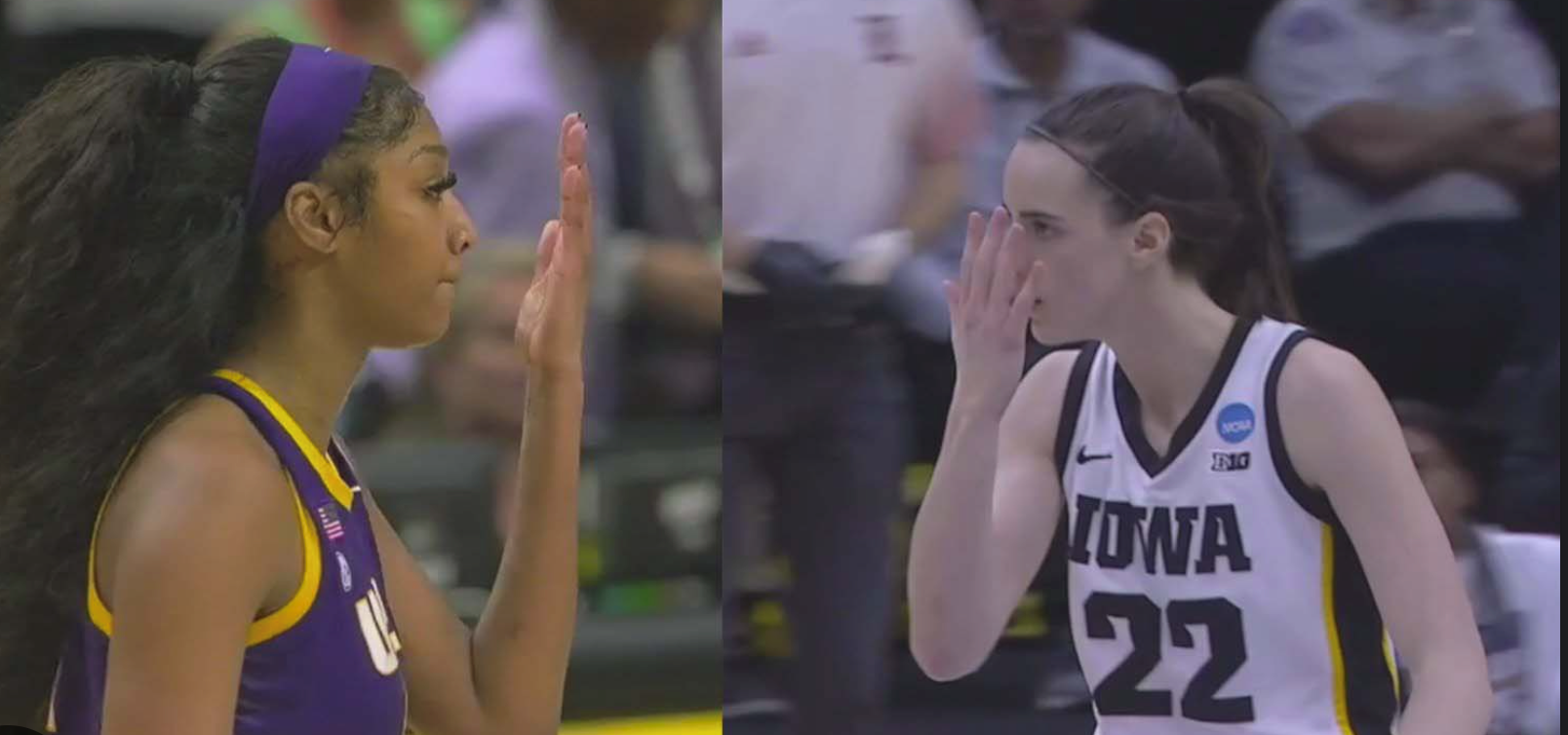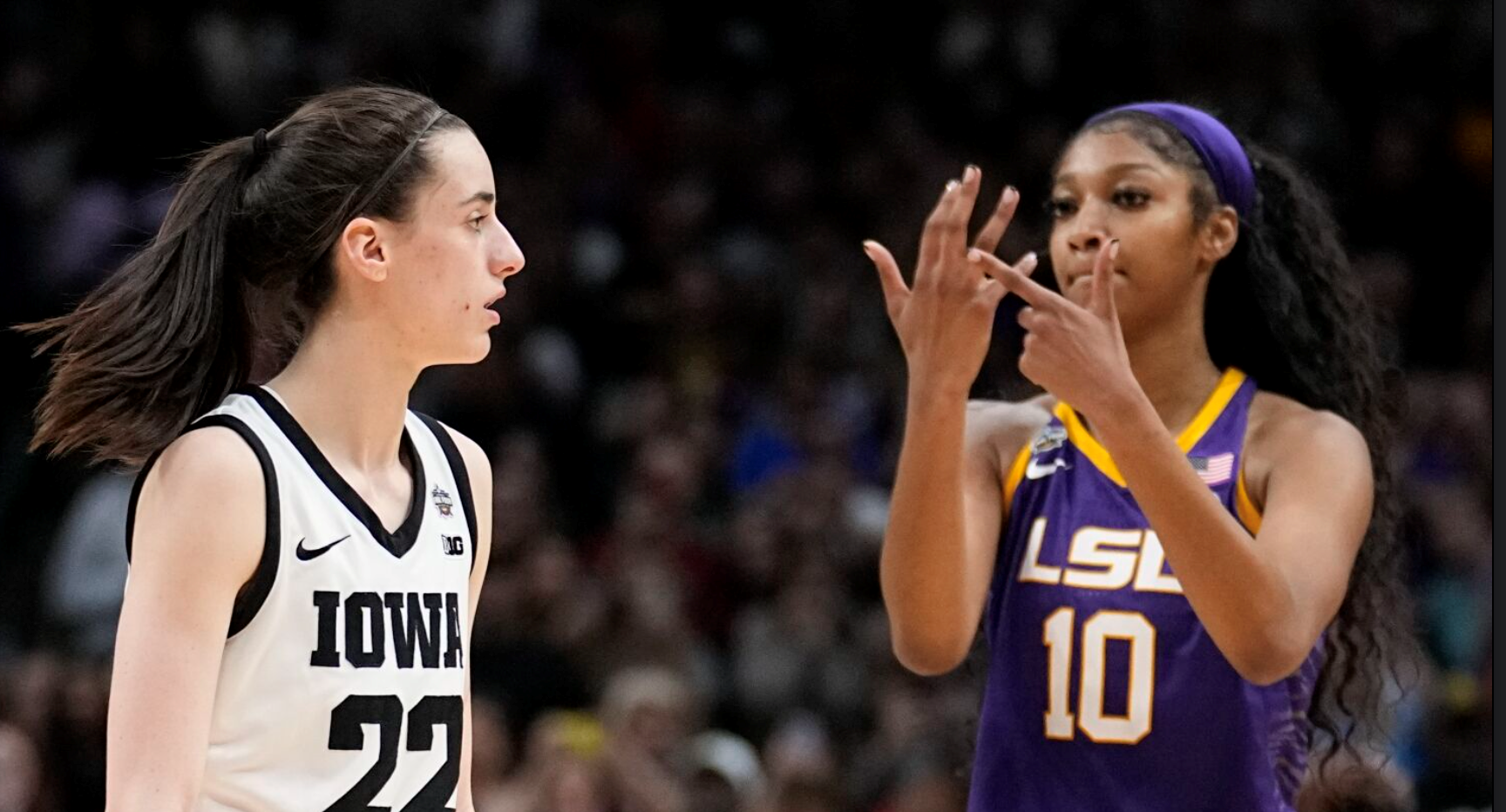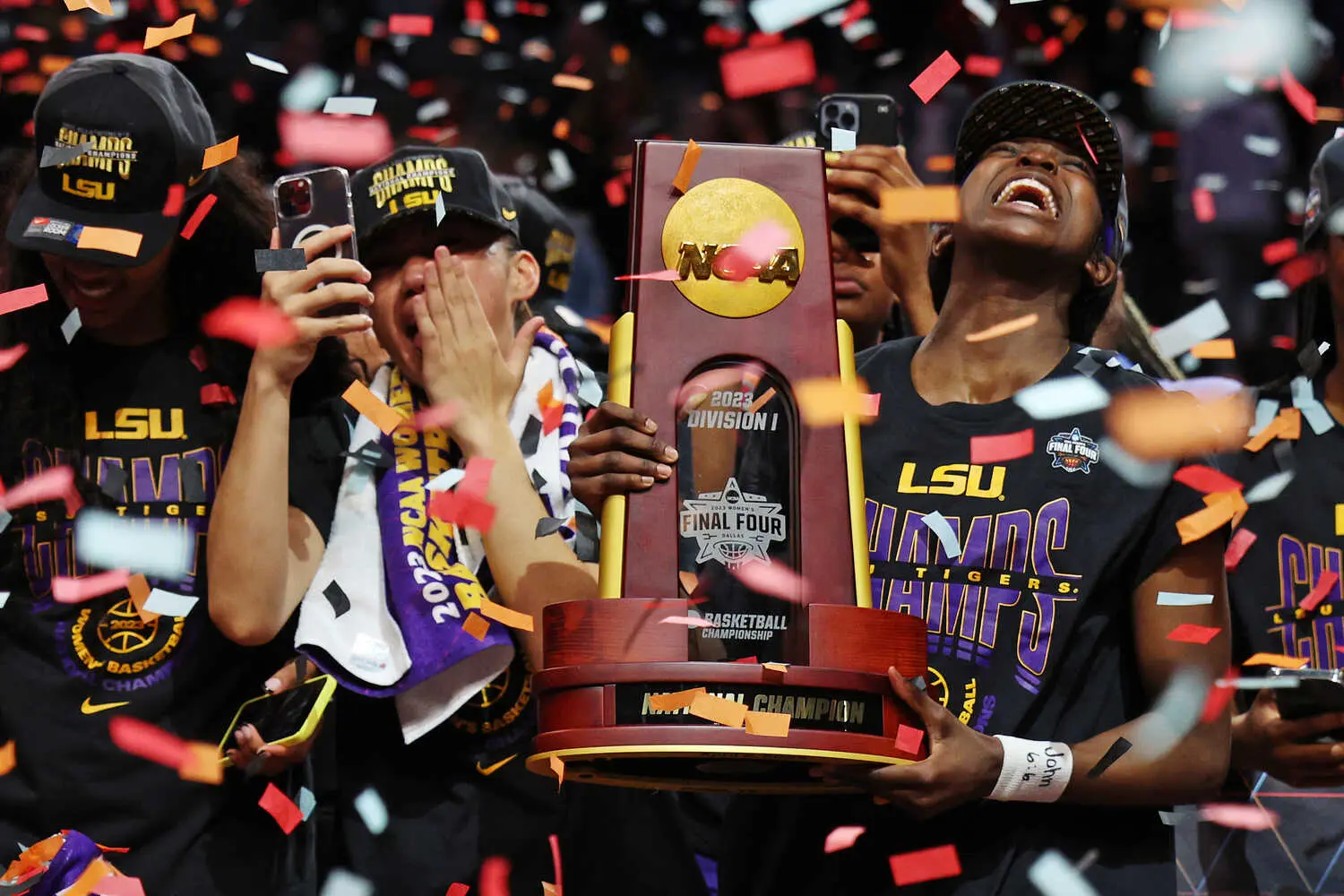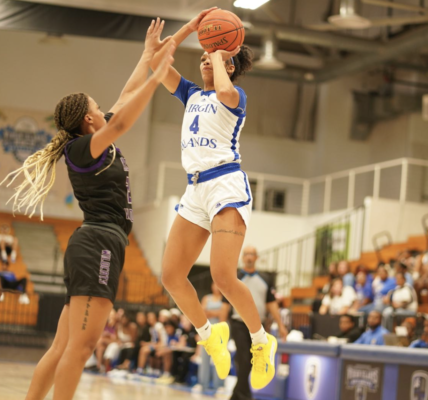by Michael Bell, UVI Voice 2.0 reporter
(STT, April 6, 2023) The NCAA Women’s Basketball Tournament is arguably the most anticipated college event, and the ‘softer’ gender garnered the spotlight this year.
According to ESPN, the LSU-Iowa game watched by 9.0 million people was the most-viewed NCAA women’s basketball game on record.
Traditionally, fans tune in to watch the best college basketball players in the United States compete for the title of national champion.
However, this year’s championship game between LSU and Iowa threatened to be over-shadowed by a controversial incident involving LSU player Angel Reese and Iowa player Caitlin Clark.
The incident occurred during the final tournament during the final game between LSU and Iowa at the Airlines Center in Dallas.

Reese displayed the “You Can’t See Me” hand wave gesture, toward Clark.
The go-to taunting gesture, made popular by WWE superstar turned actor,
John Cena, has been used by athletes across all sports for more than a decade.
Sports writer Chris Phelan explains that, “In simplest terms, it means I’m so good, strong, and fast that you can’t even keep up with me; you can’t see me. I’m operating at a higher level than you are competitively, athletically, and mentally.”
“In simplest terms, it means I’m so good, strong, and fast that you can’t even keep up with me; you can’t see me. I’m operating at a higher level than you are competitively, athletically, and mentally.”
The mockery became a source of controversy. Although throughout the women’s March Madness tournament, Clark frequently used Cena’s gesture during on-the-court performances.
Reese’s use of “You Can’t See Me” was accompanied by the gesture to her ring finger, which insinuated placement of a championship ring.

This gained a lot of attention on social media very quickly. Many believe the media aggravated the situation with unnecessary commentaries and articles.
As a result, viewers criticized Reese and accused her of displaying unsportsmanlike behavior.
It is important to recognize that race played a significant role in the response to Reese’s gesture.
Reese was subjected to a disproportionate amount of criticism and scrutiny despite the fact that as a young black athlete, she was part of an historic accomplishment: LSU earned its first national title in women’s basketball.
It was also the first time the title game aired live on ABC, which has further reach than ESPN.

As the most valuable player, Reese had a double-double in both Final Four games and had 15 points and 10 rebounds in LSU’s 102-85 win over Iowa to win the program’s first national title.
Clark, however, was celebrated as a G.O.A.T (Greatest of all Time) and her behavior praised as a way to ‘fire up’ her teammates.
The current situation is not an isolated occurrence. Racism and bias have long been pervasive problems in the world of sports; as a result, black athletes are frequently subjected to unfair treatment and double standards.
For instance, if two athletes of different races engage in the same kind of behavior, those of black race are more likely to be disciplined than those of white race.
Despite their natural ability and consistent effort, athletes of color are often subjected to a higher level of scrutiny from the coaches, officials, and fans.
Subsequently Reese’s comments rang true and loud and clear to many views.
She adamantly proclaimed, “So this is for the girls that look like me, that want to speak up on what they believe in. It’s unapologetically you. It was bigger than me tonight. I’m happy. I felt I helped grow women’s basketball.”
“So this is for the girls that look like me, that want to speak up on what they believe in. It’s unapologetically you.”
Ultimately, it is essential to remember that sports are about more than just competing against one another.
People from all walks of life are given the chance to interact with one another, gain knowledge from one another, and celebrate their common interest in the game during these events.
We can make the environment for all athletes, regardless of their race, gender, or background, more upbeat and welcoming if we emphasize sportsmanship, respect, and inclusivity.
Recognizing the significance of Reese’s comments in response to her critics is essential.
She reminded the media during press conference that, “All year I was critiqued about who I was. I don’t fit the narrative. I don’t fit in the box that you all want me to be in…”
“All year, I was critiqued about who I was. I don’t fit the narrative. I don’t fit in the box that you all want me to be in…”
She stunned an ambiguous press corp and reminded them of how they had [incorrectly] characterized her style, techniques and performances in the past.
“I’m too hood, I’m too ghetto. You told me that all year. But when other people do it, y’all don’t say nothing.”
“I’m too hood, I’m too ghetto. You told me that all year. But when other people do it, y’all don’t say nothing.”
The incident during the NCAA championship game involving Angel Reese and Caitlin Clark sheds light on the ongoing problem of racism and bias in athletics.
Reese’s actions were deemed inappropriate by some of the very people who praised the same actions of another player.
The primary difference, in fact, the only difference is that one player was Black and the other was White.
It is necessary for society to confront and deal with issues of discrimination and bias whenever they crop up.
Especially when the controversy is fueled by the media. This requires taking a public stance against instances of racism, sexism, and any other form of prejudice that may occur within the realm of sports.
It also means taking measures to hold individuals and organizations accountable for their actions and promoting transparency and accountability in all aspects of athletic competition.
Taking part in an athletic competition can be an extremely rewarding experience.
It is essential to create a healthy and positive environment for athletes to thrive in by promoting sportsmanship, respect, and inclusivity in all athletic competitions.
We can create a sports community that is both competitive and compassionate, and that promotes the values of integrity, honor, and respect for all individuals by placing an emphasis on fair play, celebrating diversity, ensuring inclusivity, and confronting issues of discrimination and bias.




The double standard is crazy. i remember reading about this the next day after LSU won the championship
The double standard was so blatant and insulting. However Reese responded with direct integrity. Black skin has to stop being humiliated and targeted.
A very thorough article great work!